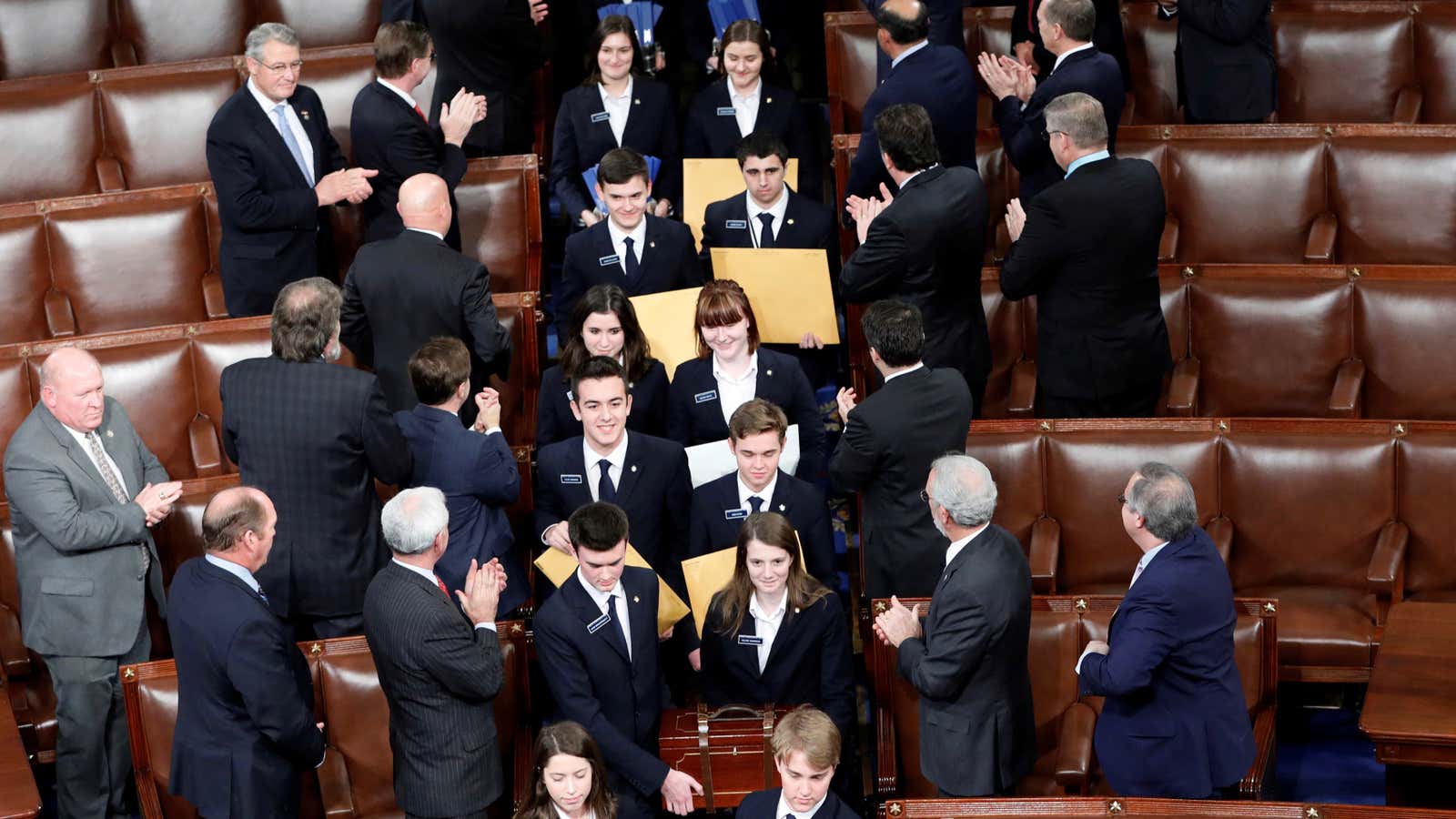The US Supreme Court is orderly, of course. But today—in debates over rogue voters of the electoral college—chaos reigned supreme.
That is to say, the justices in a very organized and calm manner discussed the likelihood that all hell could break loose in the next presidential election if they choose to rule for so-called “faithless electors.”
The matters arise from two state cases involving electoral college voters in the 2016 presidential election who did not vote as told. Washington and Colorado punished these voters, which the faithless electors claim is unconstitutional. Washington, for example, fined each of the three rogue voters $1,000, saying they violated their pledge to cast a ballot manifesting the will of the people as expressed in the popular vote.
Americans vote for the president individually. That’s the popular vote, which takes place in every state. But six weeks later, states vote through the electoral college, submitting ballots to Congress with the candidate who won by popular vote.
Those voters are members of the prevailing party whose candidate won. Most often, they vote as told, casting ballots for the winning candidate in their state. But rogue voters—of which there have been quite a few over the years—pick another candidate, someone who didn’t run, hoping to trigger a procedural vote in Congress, thus upending the presidential election.
Hence, the “faithless elector” moniker. They are unreliable and the question is whether they have the right to be, constitutionally speaking.
If so, that’s problematic. Or, as Samuel Alito succinctly put it, “It would lead to chaos.”
Thinking strategically—not so much like a justice but a political operative—Alito said that embracing the faithless electors’ view of their role would alter outcomes. “The rational response of the losing political party would be to launch a massive campaign to try to influence electors,” he told counsel for the rogue voters of Washington. “Do you deny that that is a good possibility if your argument prevails?”
Counsel conceded there were “risks” but insisted electoral college voters are free agents. The rebellious voters believe it is inherent in the word “vote,” written into their role in the Constitution, that fulfilling the electoral college function role involves discretion. They can and must be able to register their objections and render independent judgment when voting on behalf of the state. While states can make them pledge to follow the will of the people, this merely imposes “a moral obligation” on the electors, not a legal obligation.
Washington contended that it can punish the rogue voters because history, practice, and the Constitution all make it clear that inherent in the power to appoint someone is the power to impose consequences on their failure to comply with the requirements of the given function. Electoral college voters aren’t supposed to be sage and special, casting ballots based on their superior understanding of what the people really need, just delegates who relay their message in the form of the state’s votes for president.
Under the faithless electors’ theories, Washington complained, a state can’t even punish an elector who takes a bribe or engages in some other kind of corruption, which would leave presidential elections vulnerable to hijacking by anyone. A foreign country or a wealthy individual with resources to spare on hacking into electoral college voters’ pasts could find something embarrassing, and pressure them on how to vote.
The justices didn’t seem sold on any of the constitutional arguments, focusing on practicalities and political paranoia. Brett Kavanaugh, inspired by Alito apparently, introduced what seems a novel jurisprudential concept. “What I might call the chaos principle of judging,” as he put it.
It sounded downright mathematical until Kavanaugh actually illuminated it. Turns out, it’s pretty simple, or at least not to be confused with the mathematical theory of chaos, which states that seemingly random disorderly systems are governed by complex laws. No, Kavanaugh’s theory merely “suggests that if it’s a close call or tie breaker, we shouldn’t facilitate chaos.”
In other words, Kavanaugh, despite his devotion to originalism, a stated allegiance to textual readings, was totally cool with just figuring out what works best. Forget what the Constitution’s framers thought. “Just being realistic…Judges are going to worry about chaos,” he said, explaining his reasoning for this philosophical betrayal.
As would be expected, counsel for the rebels claimed not to fear extremes. He minimized the risk of a whole bunch of electoral college voters across states going rogue and at the same time banding together to upend a presidential election.
But Kavanaugh wasn’t quite satisfied. He wondered if the real issue wasn’t that states are punishing rogue voters but that the faithless electors were disenfranchising voters in their states. They were substituting their own judgment for the people’s will.
Counsel conceded this was “potentially true” and pivoted back to Kavanaugh’s usual preoccupations—the Constitution and its framers. States were never given the power to bind electoral college voters. “The Constitution has not been amended,” he concluded.
Based on the justices’ questions, however, that argument alone will not win this case, with its potentially chaotic consequences. A decision is expected by term’s end in late June. Perhaps Kavanaugh will then provide further details on just how he applies the chaos principle of judging.
